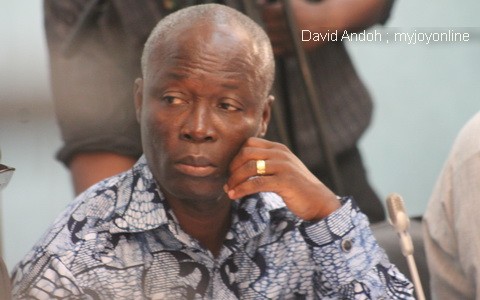
The Vice President Ghana, Kwesi Bekoe Amissah-Arthur, who made the call in an address read on his behalf by the deputy minister of trade and Industry Hon. Nii Lante Vanderpuye, said the removal of the bottlenecks would go a long way to ensure effective regional integration. “The participation by a mixture of economic operators is an indication of the private sector to play alead role in our economic revival. As a sub-region, we owe it to the future generation to make sure that factors that inhabit free trade among ourselves are removed. It is only when we remove such barriersthat we can reap from the integration,” he said.
In an exclusive interview with FINANCIAL AFRIK at the touchline of the event, the Deputy Minister of Trade and Industry, Nii Lante Vanderpuye, has called on ECOWAS member-states to muster the political will to remove artificial trade barriers, tariffs and road blocks on their international routes to promote the free movement of persons and goods.
The deputy minister said the ECOWAS market, estimated at about 350 million, with Nigeria alone expected to grow its population to 300 million by 2050, was important to all ECOWAS states and all must work assiduously to keep it open and deepened.
The fair which was hosted by Ghana and organised by the ECOWAS Commission as a tool to promote regional integration, attracted over 690 exhibitors from 12 countries, out of the 706 exhibitors expected from the 15 ECOWAS member states.
“The ECOWAS market is important to all member-states and we must keep it open and further develop it. The roadblocks, unauthorized tariffs and so on which impede the free movement of goods and persons across borders should be removed,” the minister urged.
He lamented that even advanced countries which were far ahead of West African countries still kept open borders and made movements free, much more a region which needed to grow and reduce poverty through trade.
When asked how optimistic he is to make sure that the fair would enable member states to improve their competitiveness, for them to take advantage of the huge business prospects in the global market, the deputy minister said, “The formation of the ECOWAS was a prudent decision, informed both by history and reason. For as evidence suggests, integration amongst the peoples and communities within the borders of West Africa Community predated pre-colonial history”.
“Statistics indicate that Africa contributes about 11 per cent of world trade and does around 12 per centof trade within itself. However, should Africa increase trading among itself, it could contribute about 26 per cent of world trade, and that means enormous opportunities for growth, development and poverty reduction” he added.
Goods ranging from household items to clothing are on display at the 12-day event which is being held under auspices of the Ministry of Trade and Industry and the ECOWAS Commission. Conferences, workshops, seminars and meetings, have been scheduled to discuss African trade and related issues, as part of the fair.


